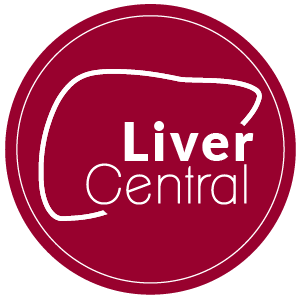Practice Guidelines
GLI has assembled the most frequently utilized clinical practice guidelines for the treatment and management of primary liver cancer.

American Association for the Study of Liver Diseases (AASLD)
AASLD develops evidence-based practice guidelines which are updated regularly by a committee of hepatology experts and include recommendations of preferred approaches to the diagnostic, therapeutic, and preventive aspects of care.
The AASLD practice guidelines are developed by a multidisciplinary panel of experts who rate the quality (level) of the evidence and the strength of each recommendation using the Grading of Recommendations Assessment, Development, and Evaluation system (GRADE).
Guidelines are developed using clinically relevant questions, which are then answered by systematic reviews of the literature, and followed by data-supported recommendations.
Indian National Association for the Study of the Liver Puri Recommendations
The Indian National Association for Study of the Liver (INASL) set up a Task-Force on HCC in 2011, with a mandate to develop consensus guidelines for diagnosis and management of HCC, relevant to disease patterns and clinical practices in India. The Task-Force first identified various contentious issues on various aspects of HCC and these issues were allotted to individual members of the Task-Force who reviewed them in detail. The Task-Force used the Oxford Center for Evidence Based Medicine—Levels of Evidence of 2009 for developing an evidence-based approach. The members of the Task-Force reviewed and discussed the existing literature at this meeting and formulated the INASL consensus statements for each of the issues.We present here the INASL consensus guidelines (The Puri Recommendations) on prevention, diagnosis and management of HCC in India.
European Association for the Study of Liver (EASL)
The EASL Clinical Practice Guidelines provide up-to-date advice for the clinical management of patients with hepatocellular carcinoma, as well as providing an in-depth review of all the relevant data leading to the conclusions.
Minnesota Center of Excellence in Newcomer Health
The MN COE builds on existing infrastructure and its partners’ extensive experience to identify and monitor newcomer health issues and needs, contribute to evidence-based policies and guidance, and ultimately improve continuity of care and health outcomes for newcomers. Working with clinicians, state refugee health coordinators, and other partners, the MN COE promotes communication among newcomer health professionals and disseminates best practices. The MN COE completes activities organized into four pillars: surveillance and epidemiology, guidance, clinician training, and newcomer health orientation and education.
Barcelona Clinic Liver Cancer
The BCLC system stratifies HCC patients based on tumor size, extent, liver function, and performance status. The BCLC staging system is thought to be better than other staging systems for determining prognosis, given the inclusion of liver function and performance status.
International Liver Cancer Association Systemic Therapy Guidance
Systemic therapy for hepatocellular carcinoma has evolved rapidly over the past few years and it is likely that the coming years will witness further advances. Consequently, the therapeutic algorithm for systemic therapy has become increasingly complex and existing guidelines are rapidly outdated. To address this, ILCA developed an online guidance which can be continuously updated in response to new data. The ILCA systemic therapy guidance aims to provide the most up to date recommendations based on currently available evidence. The Guidance document was developed by the ILCA Education Committee with input from external experts and peer review. The guidance is designed to be interactive and easy to navigate, allowing the reader to rapidly access relevant data though internal and external links. Each page is dated according to the most recent update.
American Gastroenterology Association (AGA)
Hepatocellular carcinoma (HCC), the most common primary liver cancer, remains a deadly cancer, with an incidence that has tripled in the United States since 1980. In recent years, new systemic therapies for HCC have been approved and a critical assessment of the existing data is necessary to balance benefits and harms and inform the development of evidence-based guidelines.
